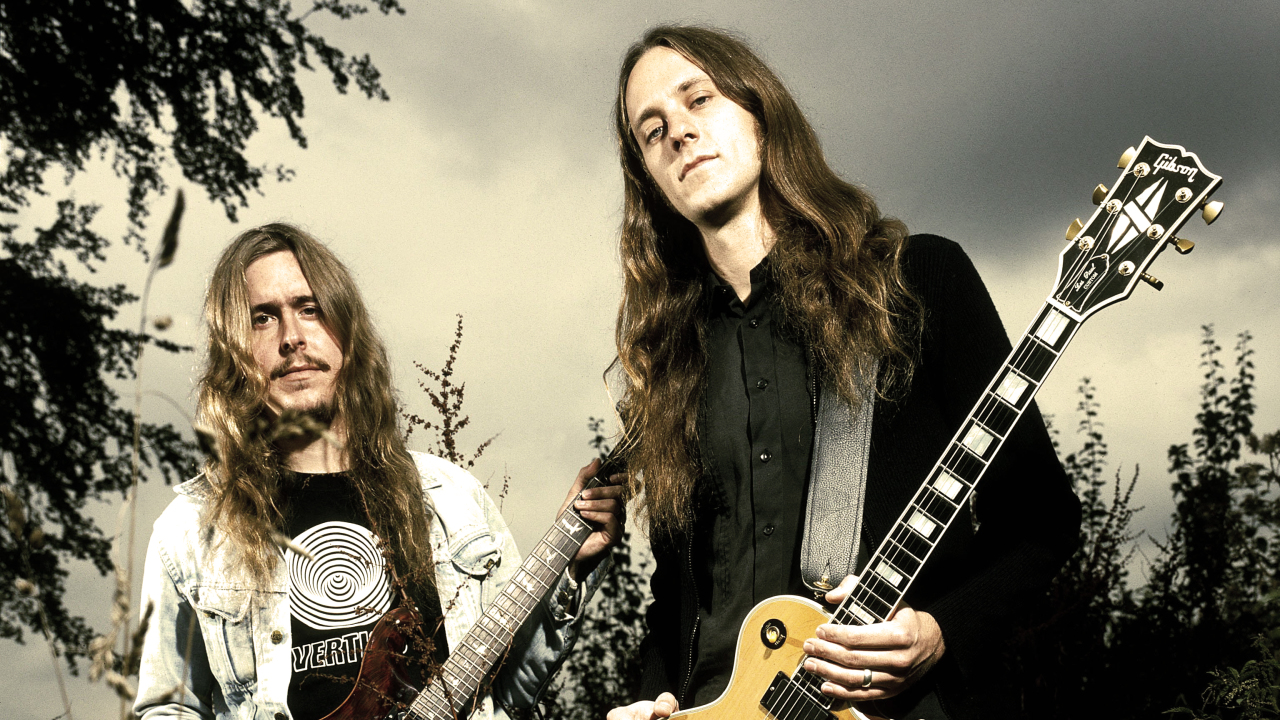From the outside, Opeth’s rise to critical and commercial glory seemed to occur without a hitch.
But in 2005, when the Swedish progressives commenced work on what would become their most successful album yet and an obvious milestone in their creative evolution, frontman Mikael Åkerfeldt was not commanding a happy ship. The gruelling gestation and birth of his band’s twin-album enterprise, Deliverance [2002] and Damnation [2003], had taken an alarming toll on Mikael’s health (“My turds were white!” he once recalled), and while few people had anything negative to say about the records, morale in the Opeth camp was at an all-time low when they travelled to Fascination Street Studios in Örebro, Sweden, to begin work on their eighth album – and, it would transpire, their first for new label Roadrunner Records – Ghost Reveries.
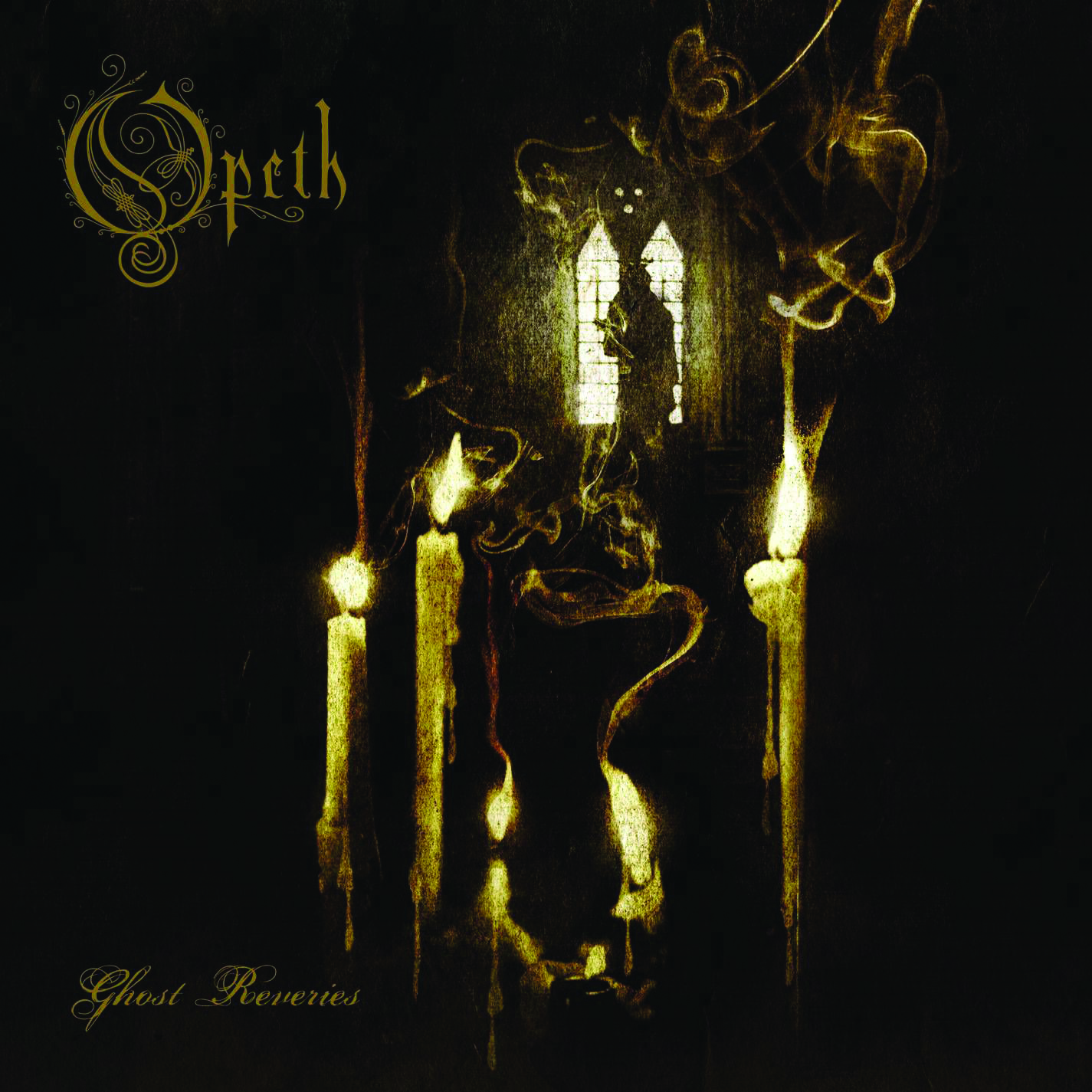
“We were a bit all over the place,” Mikael admits today. “The connection between the members had disintegrated a bit. I was more on my own than ever before. I was writing on my own. I don’t think we were communicating that well. The excitement strictly came from writing music, which I guess is all I need in the end.”
By this point, Mikael was effectively the sole creator of music in Opeth, not to mention their de facto producer. But despite the pressure he had endured during the *Deliverance/Damnation *sessions, and disharmony in the band’s ranks, his enthusiasm for penning a new masterpiece was still strong.
“I had a little home studio, a portable studio, and I was recording home demos,” he recalls. “I was hanging around with my then-wife and waiting for the birth of our first child. So I was pretty happy. I had writer’s block at the beginning, but then I started fooling around with open tunings on the guitar, and I could play the same melodies and chords and move my fingers in the same way I always did, but different notes would come out. So that was really interesting.”
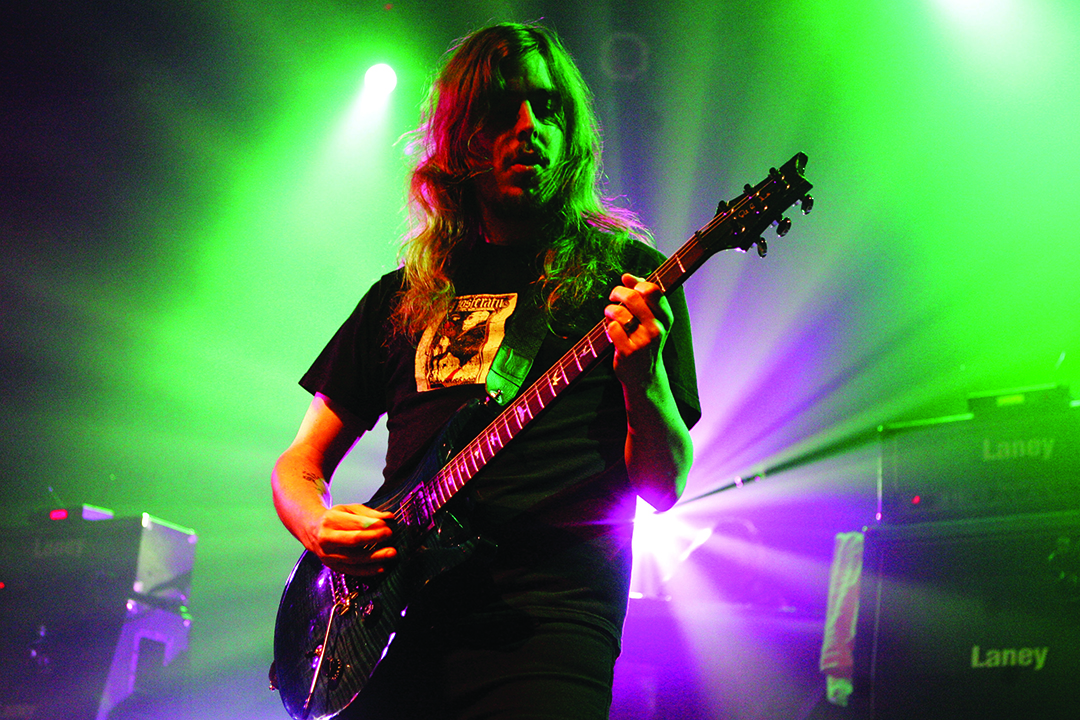
It’s been 10 years since the release of Ghost Reveries – something the band will mark by playing the album in its opulent entirety at the London Palladium this October. With hindsight, it sounds like the final chapter in the evolution of Opeth’s distinctive sound. They would veer off into more perverse territory on Watershed three years later, but at this point Ghost Reveries was simply the band’s next album and there was no intricate masterplan in place beyond the introduction of surging Hammond organs and shimmering Mellotrons played by Per Wiberg.
“I was just doing my own thing. I didn’t know where we were going, but I didn’t think it was a watershed moment, so to speak!” Mikael laughs. “The biggest thing to me was the inclusion of the keyboards, but beyond that I didn’t really think about what we were doing much at all.”
“Mike used a new guitar tuning when he wrote the songs and I believe that shaped the sound a lot,” says Per today. “It wasn’t a major difference, but it was big enough to generate a new vibe. Bringing in a new instrument such as keys changes a band’s sound by default. We kept the Opeth identity, but the sound developed a lot.”
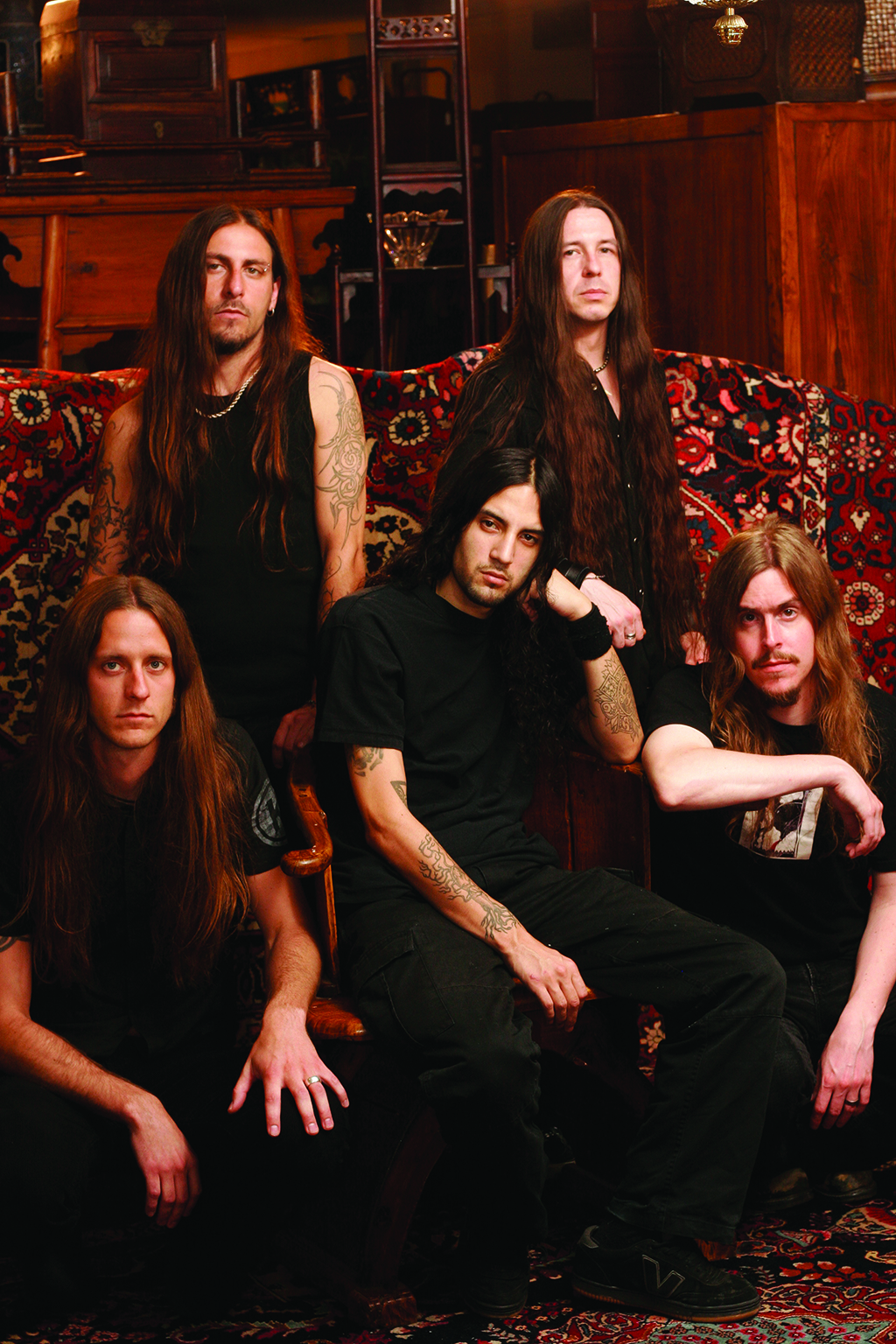
Partly motivated by a desire to avoid a repeat of the exhausting Deliverance and Damnation experience, Opeth enlisted the talents of up-and-coming metal producer Jens Bogren to help them piece Ghost Reveries together. Ten years on, Jens is an established legend in the underground with a vast list of gleaming credits to his name, including Enslaved, Soilwork and Ihsahn, but in the spring of 2005, he was a relatively unknown quantity.
“Katatonia had done a record with him,” Mikael explains. “Jonas [Renkse, Katatonia frontman] said that Jens was a good guy to record with and very into the details, which felt perfect for me. We needed someone like that because of the state of the band.”
“To the other guys, it was a big relief to record in a studio where everything worked and also having a very hands-on producer,” says Per. “It’s better for the band to be able to concentrate on performances and arrangements instead of the technical aspects of recording, I’d say. That instantly made things less stressful than previous recordings.”
Less stressful, perhaps, but also a lot more disciplined; Jens Bogren’s meticulous approach to recording Opeth’s complex but relentlessly dynamic songs provided a significant shock to the system for a band who were used to working at their own pace.
“We’d never had a producer like Jens before,” bassist Martín Méndez grins. “He was really hard! We are perfectionists in a way, but he was extremely perfectionist. I did take after take after take… I’d say, ‘Come on, I’m playing well!’ and he’d say, ‘No, you have to do it again! You can do it better!’ So that was a shock for all of us, ha ha!”
As Mikael and his comrades began to lay down their tracks for the new record, everything was going relatively swimmingly, but the problems that had been simmering beneath the surface of Opeth’s day-to-day existence were still present. Peter Lindgren’s impending departure from the band was manifesting itself in the guitarist’s increased detachment from the creative process and, most notably, drummer Martin Lopez was not in a good way. He’d eventually quit Opeth during a high-profile run on US metal package tour Sounds Of The Underground, citing anxiety and stress.
Mikael remains respectfully reticent on the subject, but it’s clear Martin wasn’t in the best physical or mental state when Ghost Reveries was being assembled.
“He was struggling and it was hard work getting what we wanted out of him,” Mikael sighs. “At one point he slept for a week, and when he woke up finally he said, ‘Where’s Per?’ and I said, ‘Well, he’s been here for 10 days and he’s left now…’ It wasn’t great, let’s say! We had glimpses of his drumming genius from time to time, and that gave us hope, but he would get stuck on the simplest part for half a day… I was thinking ‘What the fuck?’ you know?”
“I guess it was really tough for Mikael,” adds Méndez. “When the guitar player doesn’t seem to want to join in and the drummer was, shall we say, far away… We had all these possibilities for the record, but we weren’t working as well as we should’ve been.”

Given the overtly progressive direction of 2011’s Pale Communion and 2014’s Heritage, Ghost Reveries may no longer sound like the most radical album in the Opeth catalogue, but a decade ago it was a big step. From the crushing polyrhythms and jaw-dropping peaks and troughs of opener Ghost Of Perdition, through to the psychedelic, Beatles-saluting downstream drift of Atonement, and on to the swirling, deathly grooves and quasi-Satanic invocations of The Grand Conjuration, Opeth’s eighth album was both a consolidation of musical values and a startling evolutionary leap. It was certainly a record that demanded to be heard by as many people as possible, and so the band’s decision to sign with Roadrunner, after discussions with numerous big labels, made perfect sense, such was the imprint’s reputation for propelling bands into the spotlight. Predictably, however, not everyone was so impressed with the move.
“When we released The Grand Conjuration as the first song from the album, people accused us of turning into a nu metal band!” laughs Mikael. “It’s obviously bullshit. For me, Roadrunner wasn’t the label of Slipknot and those kinds of bands. They were the label of Mercyful Fate, King Diamond, Suffocation and Pestilence – that kind of stuff. So it was a classic, legendary metal label. I really didn’t expect any kind of backlash. It’s not like we started making three-minute FM radio rock songs. We just went about our business as usual.”
Released on August 29, 2005, Ghost Reveries received a flurry of wildly enthusiastic reviews and cemented its creators’ reputation as one of the metal world’s most idiosyncratic and artistically bold forces. With Roadrunner’s help, it became Opeth’s most successful record to date. The band embarked on an extensive tour, during which they lost Martin Lopez. He was briefly replaced by the legendary Gene Hoglan, as shown in the video for The Grand Conjuration, but ultimately replaced by Martin ‘Axe’ Axenrot, who remains in the post today. Then, not long after the tour’s cessation, Peter Lindgren abandoned music altogether to start a new career and was swiftly replaced by current incumbent Fredrik Åkesson.
“I’m very protective about members of the band,” says Mikael. “It’s not until you’re clutching at straws and nothing else can be done that you ever say, ‘It’s over.’ But we were at that point with Lopez, so we had to find a new drummer. After the *Ghost** *Reveries tour, Peter landed some job. I said, ‘Why the fuck do you need a job? Opeth is your job!’ and he was like, ‘Well, I just wanted to see what was around…’ He loved being in the band and he was a great guy, but he was looking elsewhere for a future. I guess we’d grown apart. It was probably good for our friendship. It was definitely good for the band. Today, we’re five guys in the band who are committed to Opeth.”
Now it’s 2015, and Opeth are preparing to revisit Ghost Reveries at their special anniversary show. In the years since its release, the band have taken far bigger risks and zoomed off on a variety of tangents, repeatedly reaffirming the fact that they’re a band with a truly progressive mindset and, it turns out, a fanbase that are willing to come along for the ride. Surviving the trials, tribulations and tricky interpersonal moments that reached a menacing zenith during the* Ghost Reveries* era emboldened the band and strengthened Mikael’s resolve. More importantly, it remains a benchmark for adventurous heaviness and a glowing advert for pursuing creative goals, regardless of how challenging that chase might be.
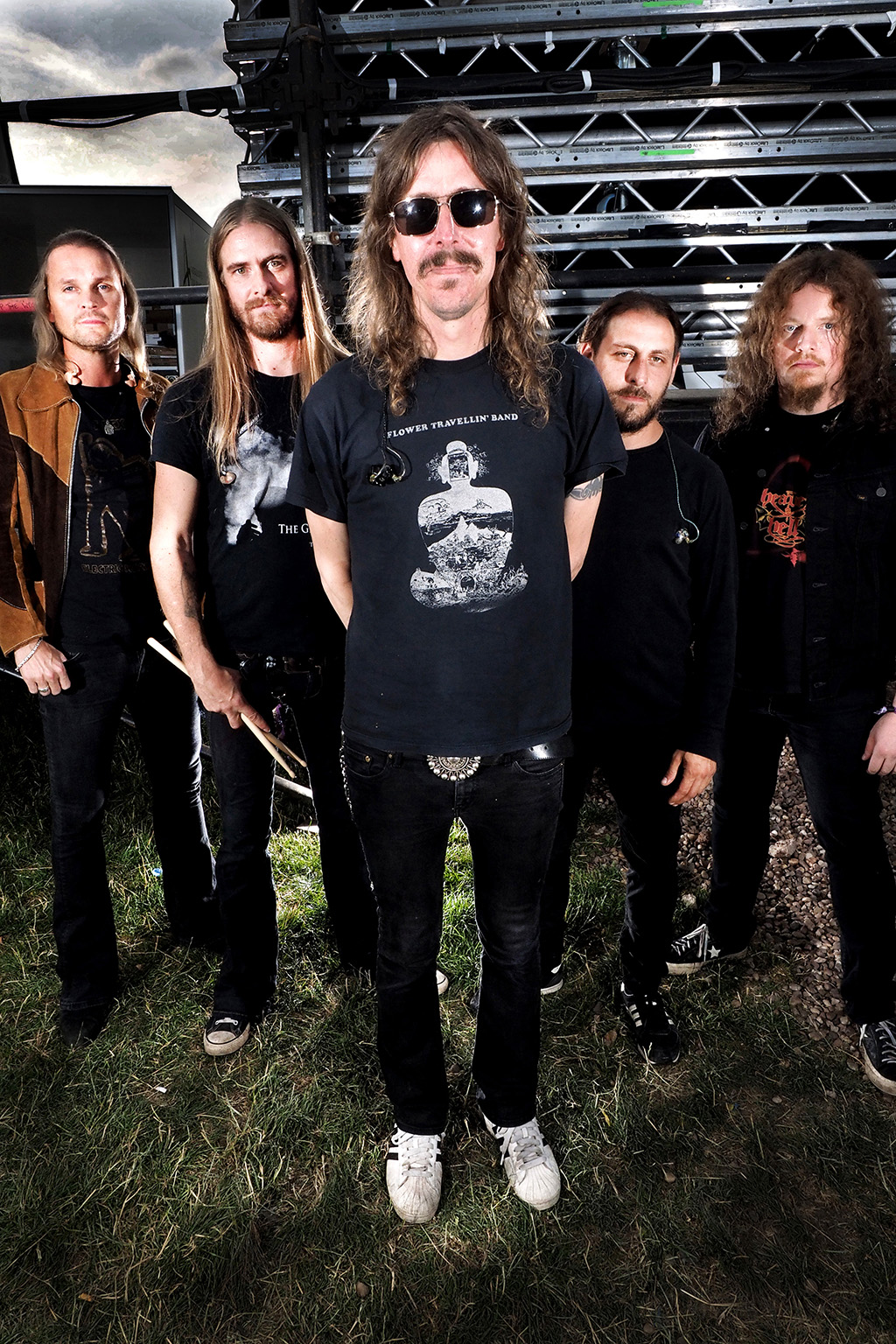
“Time flies, doesn’t it? Ten years, it feels like a month ago,” says Martín Méndez. “It’s very strange. That album did something very good for Opeth. We started to tour a lot more and we started to sell a lot more albums.”
“Every record is key to whatever comes next,” Mikael concludes. “Ghost Reveries is a really important album on many levels. On a commercial level, it made us better known. Creatively, it opened the door to where we are today. At that point in time, it was the best we could do. It’s a fucking great record, isn’t it?”
Opeth play the London Palladium on October 18
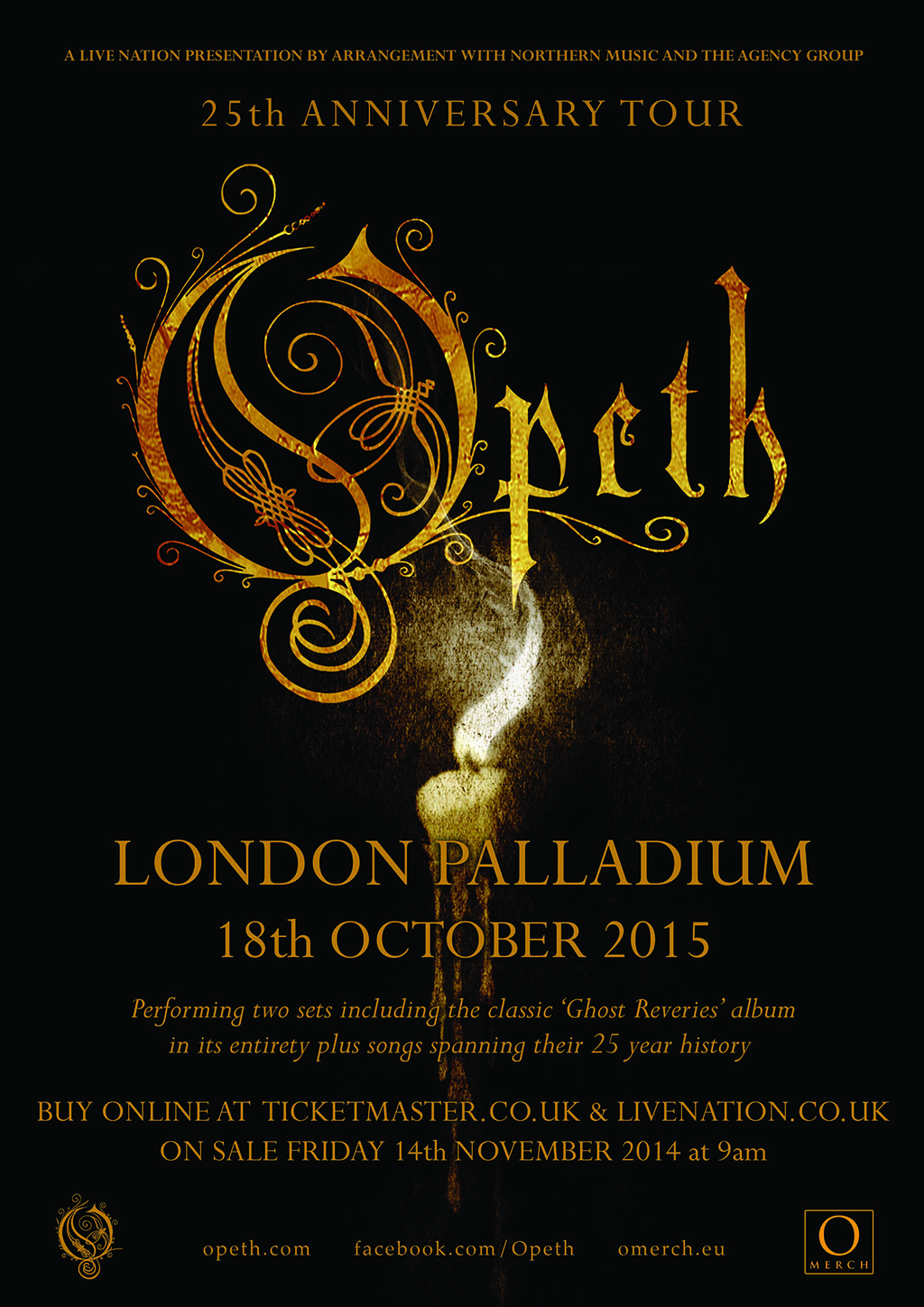
Giving Up The Ghost
Why Opeth are excited about revisiting their 10-year-old masterpiece at the London Palladium…
What can we expect from the Ghost Reveries anniversary show?
Mikael Åkerfeldt: “It’s a strong and varied album, so it should be an interesting gig, I think. We’ll play the whole thing and then come back on for the ‘greatest hits’… ha ha ha! But we like to play some of these songs from time to time anyway. Even the fans who decided that everything we did after Ghost Reveries is shit seem to think this is one of our best records.”
Are there any songs you’re particularly looking forward to playing?
Mikael: “Atonement has become a great live song over the years. We like to jam that one out, and it gives us a lot of freedom. The Grand Conjuration is one of my favourite Opeth songs to play. It’s so heavy and straightforward, and we don’t have many songs like that… and it’s really not a nu metal song, I promise you.”
Martin Mendez: “We’ve actually never played Beneath The Mire or Isolation Years before, as far as I can remember! So that will be pretty special. Particularly with something like Isolation Years, it’s all about the feeling, and that’s much harder than all the technical stuff.”
